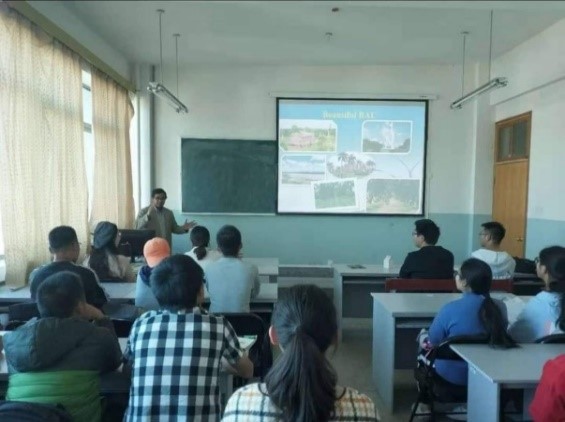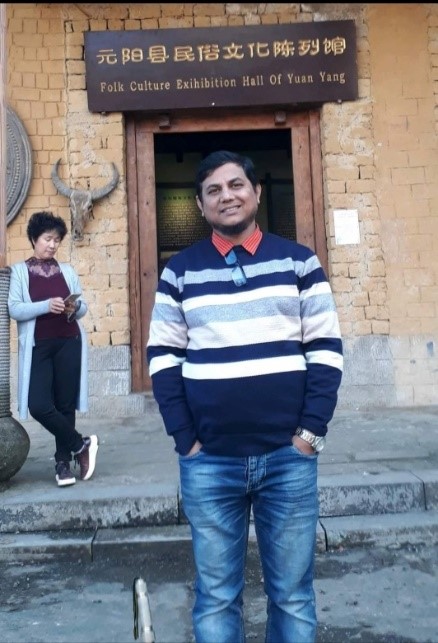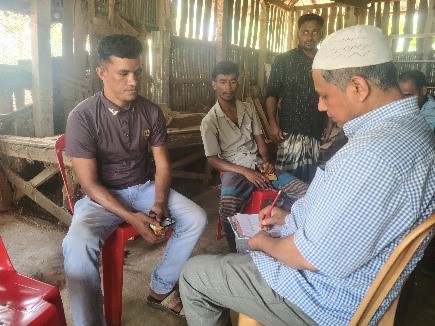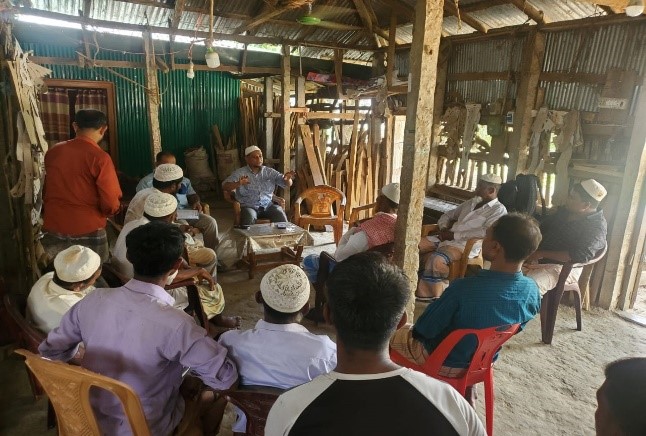Md. Asaduzzaman Sarker
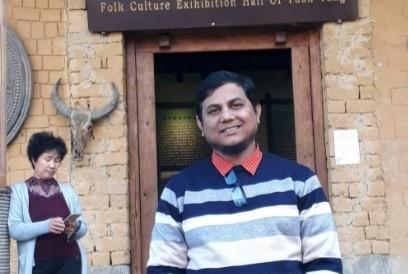
VISITOR’S VOICE
Interview with Md. Asaduzzaman Sarker ❯❯
Bangladesh Agricultural University
CSEAS Visiting Research Scholar: May to July 2024
FAVORITE THINGS
Teaching
I find teaching rewarding because I can witness learners’ progress both academically and non-academically and see them become well-rounded persons and citizens ready to take on challenges. I have discovered that I am passionate about teaching. I have been tutoring students for the past two decades and I find great joy in helping others understand new concepts and build skills.
Research
Agriculture has been a significant part of my life, as I grew up in a farming family. My experiences on the farm are valuable because they made me realize that agriculture is about human existence. I had the chance to learn about agriculture from the most important people in my life, my family. I believe that my home roots played an important role in my passion to become more involved in agricultural research. Without agriculture, we would not be able to feed our overgrowing population. The agriculture sector is constantly adapting and developing new technologies and science to meet our populations’ needs. Thus, I feel happy to engage in agricultural research with the aim of feeding people. This is simply my worship to God.
Travelling
My favorite hobby is travelling. I like all kinds of travel: by car, by train, by plane, by ship, and on foot. I love to travel without a group and without a guide, despite the fact that I often find myself in a difficult situation in unfamiliar places. I am interested in seeing new sights, exploring different cultures, and all else. I also love to spend time in and honor the beauty of natural places, such as mountains, waterfalls, forest lakes, seas and oceans, forests, valleys, hills, and so on. Through travelling, I can learn about the history of a country. I visit to see cultural and historical places, to meet people of different nationalities, and to learn about traditions, customs, and culture. In other words, I can expand my mental horizon.
Interview
Rohingya Refugee Influx and
Socio-environmental Crises in Teknaf Peninsula of Bangladesh
01
Please tell us about your research.
The world is facing severe refugee crises due to war, violence, and oppression based on race, religion, ethnicity, and political opinion. In August 2017, armed attacks, widespread violence, and serious human rights violations forced hundreds of thousands of Rohingya to flee their homes in Myanmar’s Rakhine State. Now, more than one million Rohingya people have found safety in Bangladesh, the majority of whom live in Teknaf Peninsula of the Cox’s Bazar region.
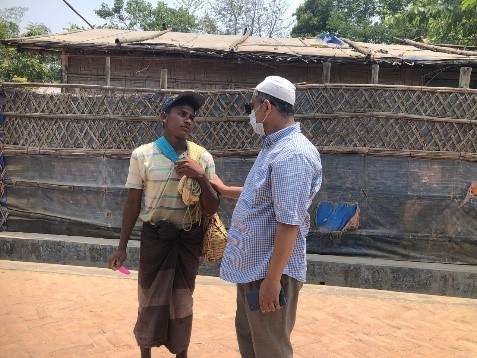
The Rohingya refugee crisis has had a profound impact on the environment of the Teknaf Peninsula in Bangladesh, particularly in terms of increased deforestation. As hundreds of thousands of Rohingya refugees sought shelter in the region, the demand for land and resources has led to a concerning rate of forest degradation. In the wake of the sudden and massive influx, makeshift camps have rapidly expanded, encroaching deeply into the surrounding forests. The number of refugees has significantly increased the demand for resources such as firewood, timber, and land, leading to widespread deforestation. This destruction of the forests has disrupted the delicate balance of the local ecosystem, threatening the survival of numerous plant and animal species.
Along with environmental costs, the host communities in Teknaf peninsula also have been experiencing numerous socio-economic consequences. These include the saturation of the job market, rising costs of living, poor agricultural productivity, tensions, conflicts, and so on. While international actors and donor agencies have been supporting the refugees on humanitarian grounds since the crisis started, the cries of the host communities remain unexplored and neglected. However, it is essential to consult with host communities to provide tailored support and resources that address their specific needs and concerns, which can help mitigate the negative impacts of the refugee crisis. Thus, need to foster cooperation and dialogue among the government, the international community, and host communities is critical to address the complex challenges posed by the Rohingya influx. My current study is therefore an attempt to discover the unspoken story of the host communities in Teknaf peninsula of Bangladesh.
02
Can you share with us an episode about any influential people, things, and places you have encountered whilst doing your research.
The powerful tools of a successful social study are interacting with respondents to probe their sentiments about community issues and keen personal observations. During my fieldwork, I always seek a community narrator who possesses key information about the strengths, weaknesses, opportunities, and threats of the community. Mr. Md. Delowar Hossain from Unchiprong Village of Teknaf Subdistrict is such a person. He enlightened the research team with full access to an “archive” of the Rohingya crisis. Mr. Hossain generated an image of the research problem that was like a land use and land coverage map generated by Q-GIS software.
03
How do you overcome the difficulties in putting together the results of your research into a research paper or book?
This is the real challenge for a researcher. I return from my fieldwork with a huge amount of primary and secondary data (including photographs, video clips, and so on), which requires serious commitment to process (i.e., coding, categorization, analysis, tabulation, etc.). However, due to poor statistical skills, I sometimes struggle to highlight the key data when preparing the narrative of my manuscript. In such a situation, I usually rigorously read similar studies to refine my research conceptualization. Additionally, I try to consult with a statistician to select appropriate data analysis methods to objectively interpret the data and draw meaningful conclusions. I thus advise PhD students/young researchers to try to write a draft of their manuscript based on secondary materials before they begin fieldwork to improve their research concept and help determine precisely what it is that they need to further research.
04
What is your ideal image of a researcher, and do you have any advice for those who aim to become researchers?
An ideal researcher needs to be passionate and hard working. Spending more time reading will be his/her strength for designing a quality research plan and successfully implementing the study. Especially, social science researchers should have the mindset to stay and work in remote areas, mix with the local people, and they must respect local culture. I would like to advise upcoming researchers to build reading behavior, improve IT and language skills, and master statistics.
05
What are your future ambitions as a scholar?
My hope as a researcher is to devote myself in my future work in a way that will impact society rather than simply increase the impact factor of my publications.
06
Why did you choose CSEAS, or what is your expectation here?
Since I have worked extensively on organic agriculture and climate change related issues in Southeast Asia, I was delighted to see CSEAS researchers also working in Southeast Asia with the view of solving pragmatic problems and uplifting people’s way of living. “Southeast Asia” has enormous challenges as well as significant potential. It is where I am most emotionally engaged—my soul belongs to Southeast Asia. So, I am exhilarated to be part of the thought-provoking environment of CESAS to expand my research interests and for future collaborations, if only for 3 months. I already hope to return and to continue to stay in touch with CSEAS for future research collaboration, as I am loving my time here at Kyoto University!
(May 2024)
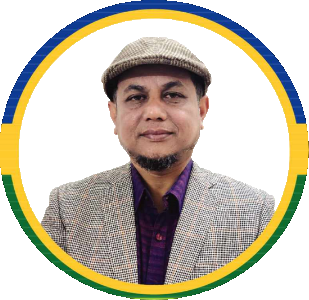
Dr. Md. Asaduzzaman Sarker is a Professor of Agricultural Extension Education at the Bangladesh Agricultural University (BAU), Mymensingh, Bangladesh. He obtained his undergraduate degree in Agriculture (1996) and MS in Agricultural Extension Education in 2001 from the same university. Prof Sarker received his second MS (in Agriculture) from Yamaguchi University, Japan in 2007 and PhD in Bio-production Science (Managerial Economics) from the United Graduate School of Agricultural Sciences, Tottori University of Japan in 2010 under the supervision of the Professor Yoshihito Itohara. Professor Sarker is a certified organic leader of IFOAM Organics and promotes organic farming in Bangladesh and Southeast Asia. His major research areas are organic agriculture, climate change, and sustainable rural development.
Visitor’s Voice is a series of interviews to showcase our fellows while they stay with us at CSEAS. The interview highlights their research activities while also introducing the people and episodes behind the work, must-haves for field research and writing, book recommendations, future ambitions, etc., in a question-and-answer format.
